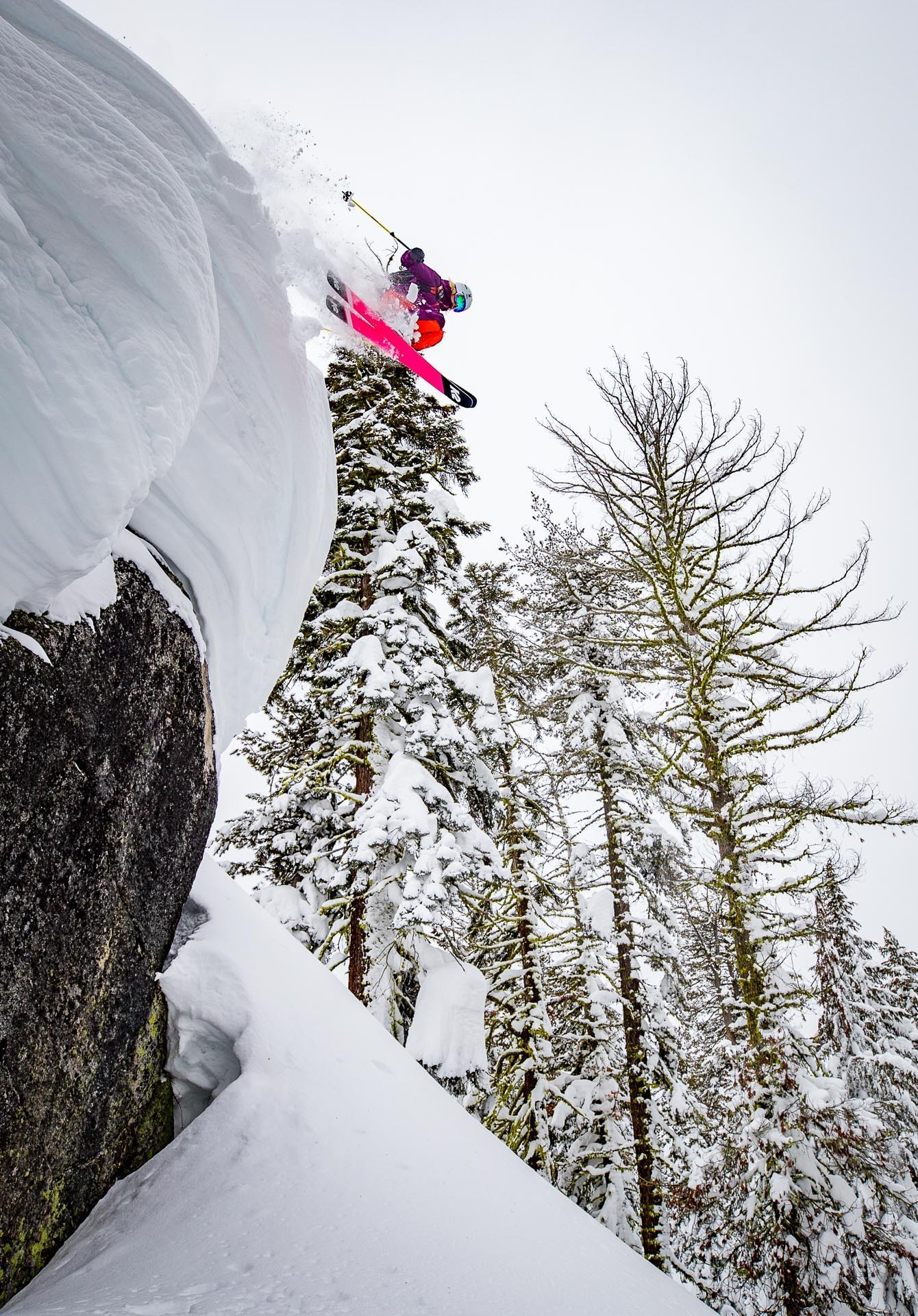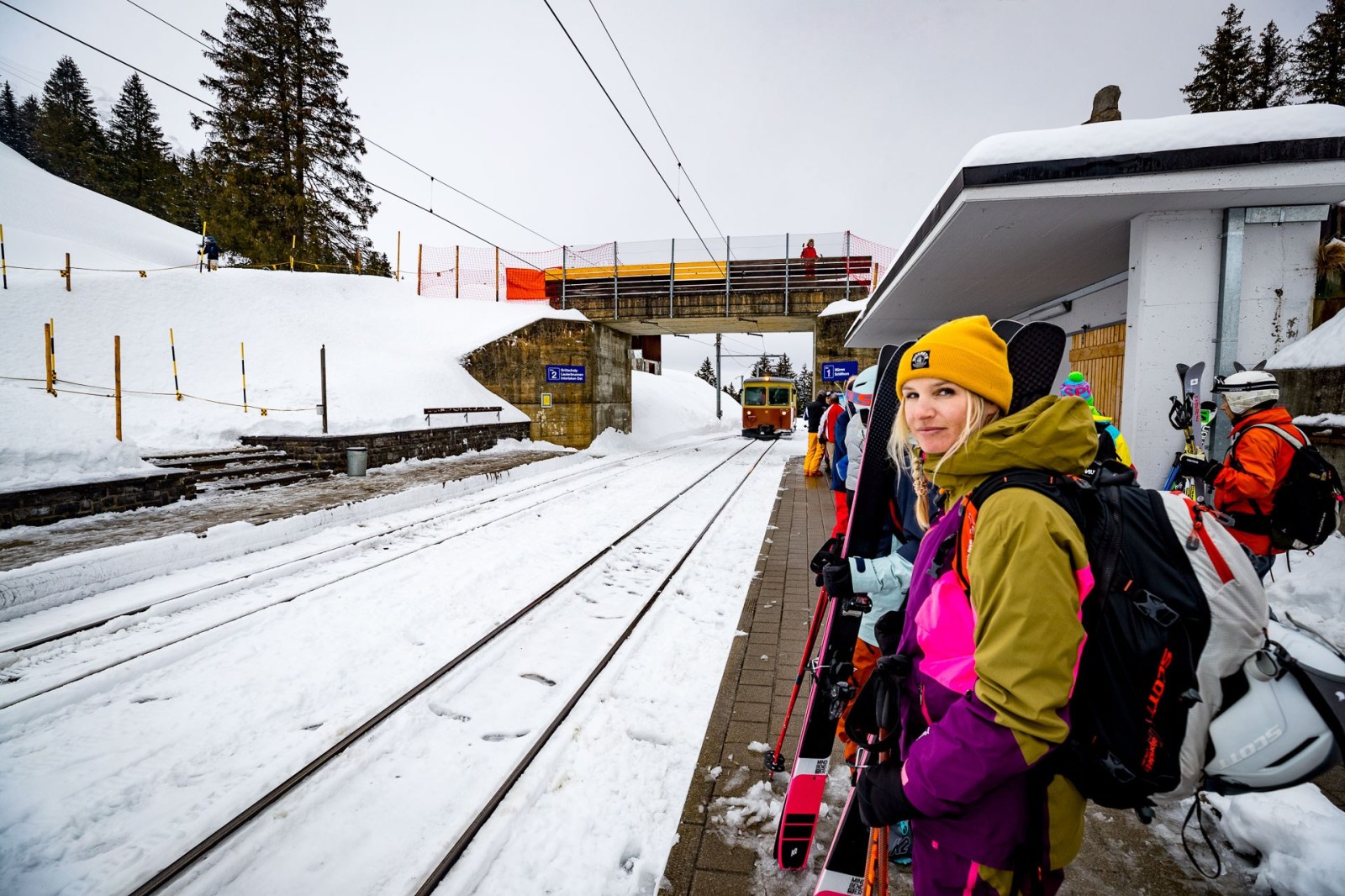Amie Engerbretson, 31, started skiing for the camera at the age of 4, scoring the cover of a Squaw Valley brochure. Her father, photographer Jeff Engerbretson, had Amie at age 20, deep into his pro skiing career. He taught her a love of teamwork, communication, and how to create something from skiing she can share. Amie raced on the Squaw Valley ski team near her home in Truckee, California, until she decided to stop racing to pursue ballet.
After a year and a half at the University of Arizona, Engerbretson moved to Chicago at age 20 to earn a degree in media management at Columbia College. Taking time far away from skiing gave her ownership over the choice to come back to the mountains.
Full Moon Night Skiing in the Austrian Alps
After the trauma of two avalanche incidents, a full burial in the Alta backcountry in 2013 and another incident just a month later in Crystal (she was not buried, but injured her knee), Engerbretson focused on regaining control, improved her backcountry knowledge, and landed parts in four Warren Miller films, including this season’s 70th anniversary film Timeless. Amie says she turned a corner last season, readying herself to ski bigger, badder terrain, and promote the women who ski it with her. —Interview by Jake Stern

I have a funny relationship with goals. In high school they were super specific, I would get in trenches and burrow toward that goal, get tunnel vision and miss other opportunities.
Part of the personality of being a professional athlete is being insatiable. You should be doing more, should be going harder. The culture promotes that attitude.
I’ve been dealing with the trauma of those two big avalanches for four or five years. I went to therapy and trauma counseling. I worked hard to figure out what was the most traumatic element of the event—the loss of control. Last year I was able to eat breakfast on ski mornings again, which was a huge victory.
My dad and I used to go to conventions and teach seminars on swing dancing aerials. I was once ejected from the Cowboy bar in Jackson for doing aerials.
Interview: Jeremy Jones Advocates for the Environment
Regarding gender, the ski industry has come leaps and bounds; women are getting cast in ski features, we’re designing gear and equipment that is truly women-specific. Ultimately, it’s an industry that’s still driven by men. It’s gotten so much better, though. We’re on a good section of the wave.
I don’t think a professional athlete has a responsibility to be an activist. I am one thing; I’m not a philosopher, nutritionist, a politician. Every single person on the planet has the responsibility to work for their community. But it’s weird to expect athletes to be activists just because of their number of followers.
When I went to Washington, D.C. to advocate on behalf of POW, it wasn’t as a pro-skier, it was as a community member of Truckee. Politicians aren’t untouchable, they have ears. With the financial power of the outdoors industry, they have to listen.
Patagonia Matches $10M in Donations to Support Environmental Orgs (All in Just 17 Days)
Snickers bars have roughly the same nutritional value as energy bars, but taste way better. I keep one tucked into my long johns while skinning. A warm Snickers bar before you drop in is the best feeling in the world.

This story originally appeared in the November 2019 (48.2) issue of POWDER Magazine and was republished with permission.
To have great stories like this delivered right to your door, in print, subscribe here.
The post Should Professional Skiers Be Climate Lobbyists? appeared first on Men's Journal.
Comments are closed.